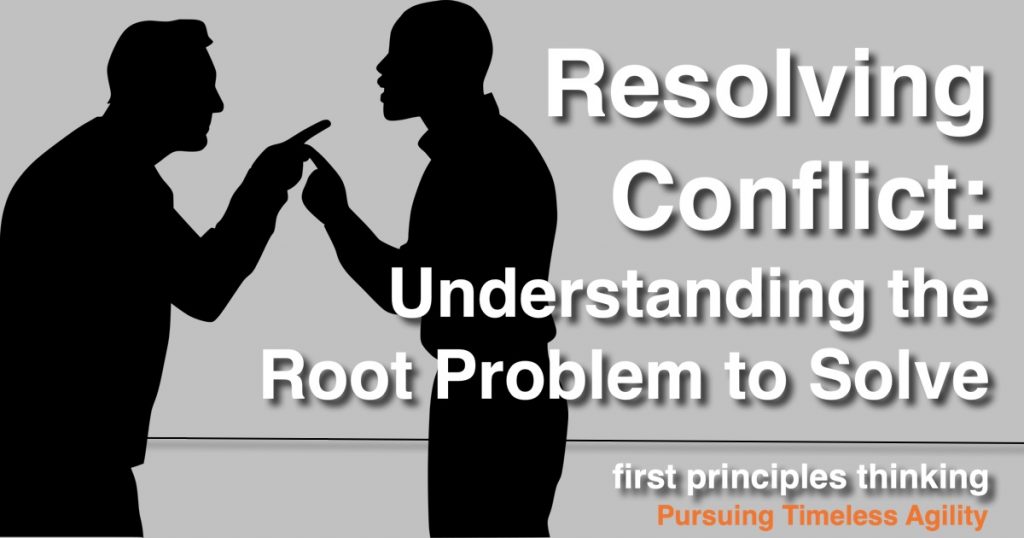If you’ve ever worked outside of a high-performing team, you’ve seen all the symptoms of unhealthy conflict – such as undermining others, talking over people, and taking ownership of others’ ideas. For some, there is an insatiable appetite, a “need” even, to be right and to elevate themselves. When two or more people have this “need,” you’ll have conflict.
I’ve been that person to some degree. You’ve surely dealt with people that dig in to their ideas and do whatever it takes to have those ideas win the day. People that disagree with them are considered stupid. They hope others’ ideas fail so they can say, “I told you so.” The need to be right, smart, and important outweighs all other reason. Why is that?
What is the root of conflict? Why do people argue and compete for ideas so strongly? Is that a bad thing?
I believe we dig in and hold on to what we think is right because we were raised to believe the strongest survive; that the best ideas and “smartest” people succeed. We think our ideas and methods are best, or at least better, so we fight for them. We have to be the source of the great ideas so that we get credit, so that we get promoted and praised.
A good first thought, but…
On the surface, we could attempt to solve this cultural problem by diminishing the focus on individuals and make it all about the team. This is what many are attempting to do. This team focus, some might say, will reduce this type of unhealthy conflict. That’s a good first thought. When we ask, “what problem are we trying to solve?”, we can point to something very real. But…is that solving the “right” problem? I think we need to dig deeper.
Applying First Principles Thinking
Why do we think our ideas are better? Why is it so important to be “right?” I believe the root issue is pride. Take a look at any conflict, any disagreement, and somewhere in there is a battle of wills for who is right. That’s why we argue.
The world taught us that being right is important, so we work hard to show others how smart we are. Corporate culture often rewards individuals for being right, so that creates competition for the best ideas. Here’s the problem though. We cannot know which ideas are best, or better. Only history can decide if an action was helpful or hurtful.
Don’t hear what I’m not saying.
I’m not saying healthy debate over competing ideas is bad. What is unhealthy is the “need” to be right. It becomes healthy debate when you are actively seeking to disprove your own ideas in search of the best decision you can agree to today.
Assumptions that need validation
I believe what we are always working with are assumptions. We may gain confidence in those assumptions based on data and/or experience, but they are just assumptions all the same. And assumptions need to be validated.
That’s a mindset shift no amount of change in policy or practice can overcome.
When our mindsets shift from understanding that we don’t truly know which ideas will produce the best results, to understanding that we merely assume, then we can let go of the conflict of competing ideas and work together toward testing and validating our assumptions.
Humility, or lack of humility, is the real problem to solve.
Achieving Timeless Agility requires more than surface-level changes in team structures, policies, and practices. It requires mindset shifts in every individual, which completely changes the “why” behind everything you do. Yes, what you “do” matters, but “why” you do it matters more.
Learn more about Pursuing Timeless Agility in my book or subscribe to our weekly Timeless Insights (see form on this page).
